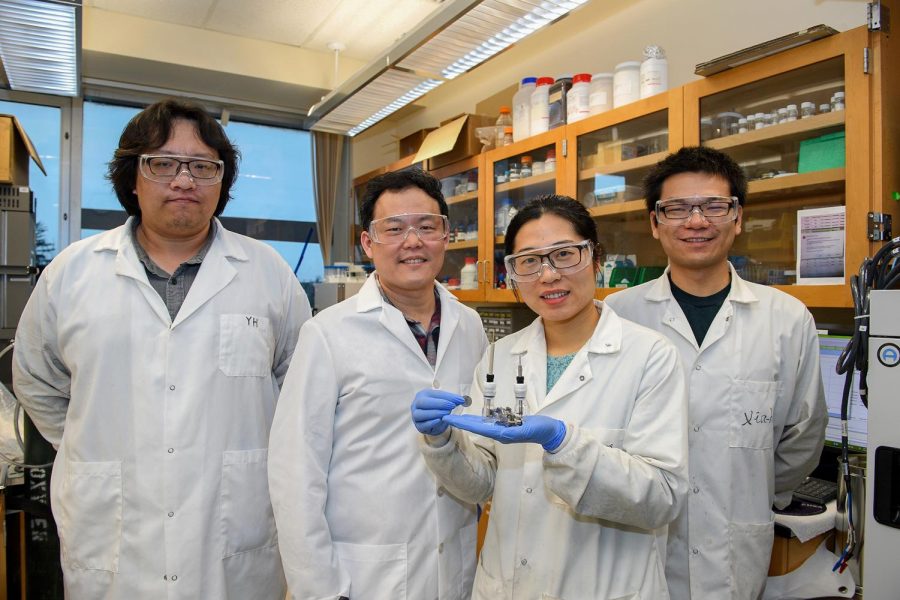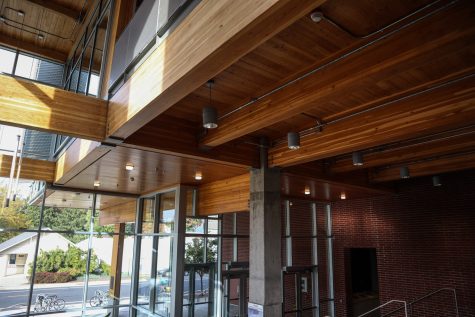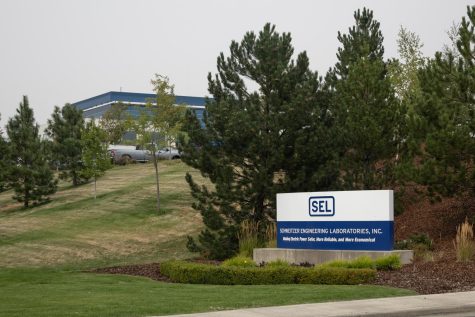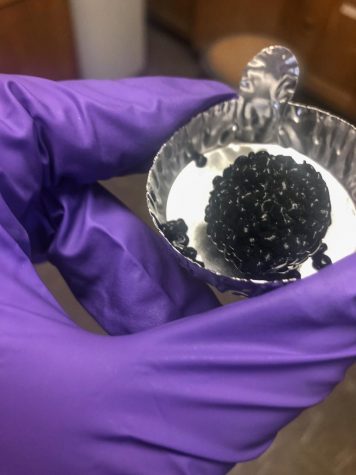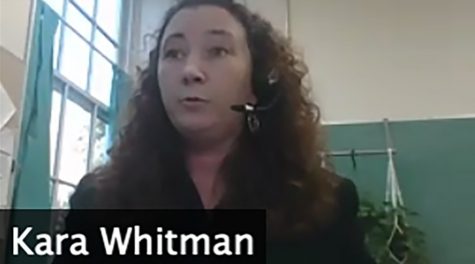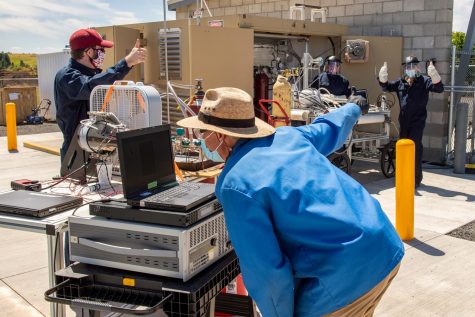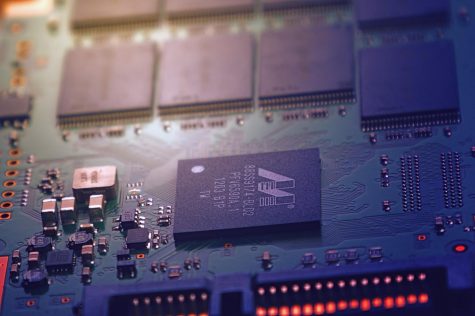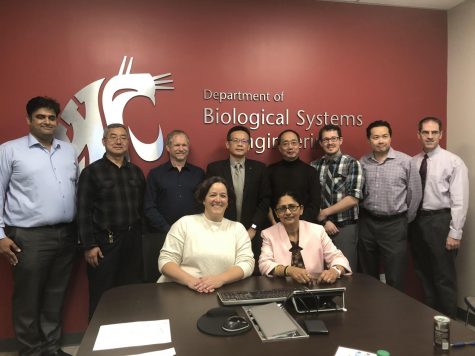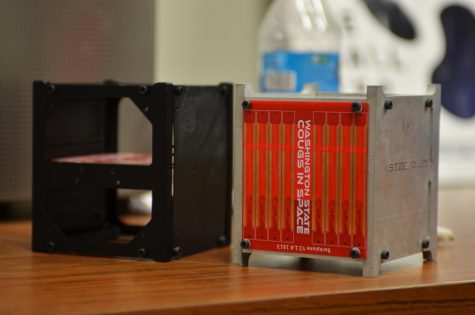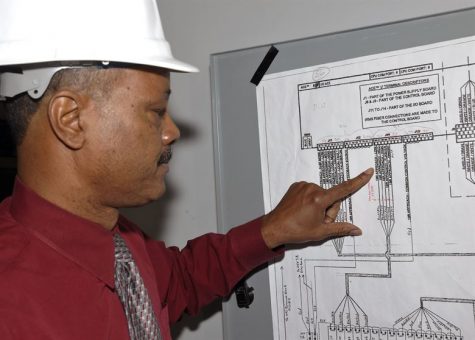Research team makes batteries safer
Lithium elements have risks; alternative can be used for phones, laptops, electric cars
Left to right: Younghwan Cha, Min-Kyu Song, Panpan Dong and Xiahui Zhang
A WSU research team has created a way to make a high-energy battery which forgoes the safety issues found in lithium-ion batteries.
Min-Kyu Song, WSU School of Mechanical and Materials Engineering assistant professor, led the research project. He said the research team developed a formula that protects the lithium anode, which is a current that enters a polarized electrical device.
He said the WSU research team put two additives into a lithium metal battery in order to create a protective layer. One additive is a non-toxic chemical called selenium.
According to WSU Insider, lithium metal has the highest energy density. This allows lithium batteries to last longer.
Panpan Dong, WSU School of Mechanical and Materials Engineering doctorate student, said lithium-ion batteries have been known for being efficient. However, these batteries have safety risks, such as overheating and catching on fire.
Dong helped to assemble the battery, as well as tested it to see how it operated with the additives. The new battery re-charged 500 times while retaining high efficiency, she said.
She said this research will help reduce the cost of the materials used in the lithium metal battery.
Song said high-energy batteries, like lithium-ion batteries, can have several applications in people’s daily lives. The batteries can be used in electronics, such as phones, laptops and electric cars.
Lithium metal batteries can improve the driving range of electric vehicles. They can also be used in the aerospace industry, he said.
Song said he hopes his research can help power electric aircraft in the future.
“The batteries can last a long time without needing to be re-charged, but the safety cannot be compromised when finding high energy,” Song said.
According to The Guardian, last week the U.S. airline Delta announced they will be going carbon neutral. This means the airline will shift from jet fuel to battery power. Delta plans to spend $1 billion to reduce its carbon footprint.
The United Nations aviation body projected there would be 900 million metric tons of carbon dioxide emissions coming from airplanes in 2018. They predict that number will triple by 2050.
“We need low carbon air travel,” Song said.
He said he plans to work on creating a separator which further protects battery materials while making it safer.
Song said the project was funded through Washington State’s Joint Center for Deployment and Research in Earth Abundant Materials (JCDREAM). The project began in 2017.
The research was published in the journal, Nano Energy.

Madysen is a Senior journalism and media production major from Rosalia, Washington. She also is involved with Residence Life, the Association for Women...


